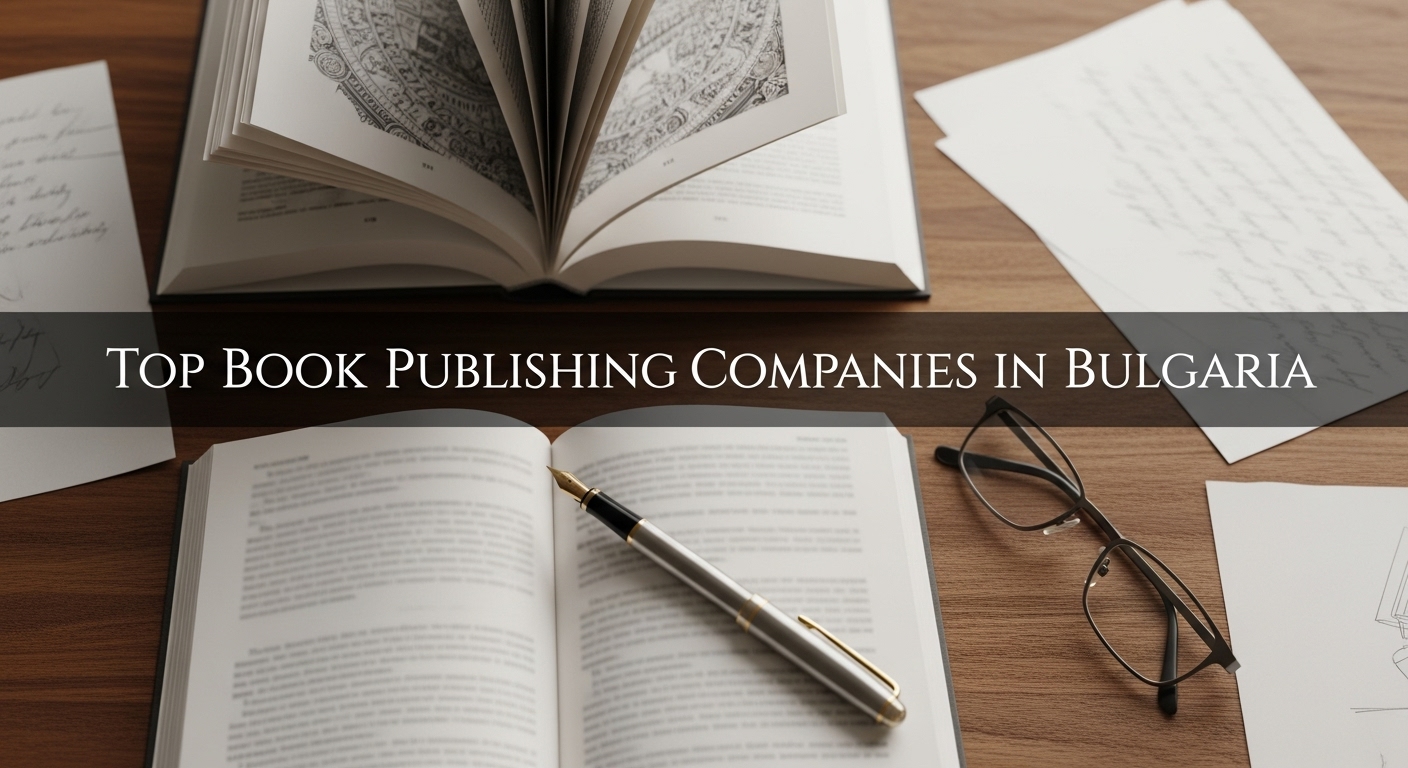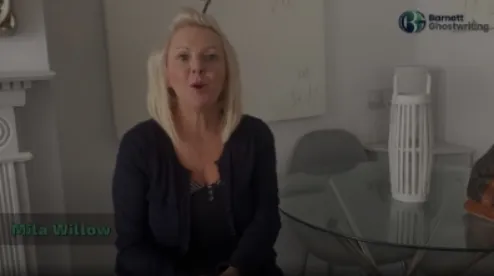
Bulgaria’s book market blends strong literary tradition with a dynamic translation culture. You’ll find presses that champion contemporary Bulgarian voices, houses that specialize in education and children’s literature, and outfits that import celebrated world fiction and nonfiction. Distribution is centered in Sofia but extends into vibrant regional hubs like Plovdiv and Varna, with active festival circuits, campus presses, and independent bookstores helping new titles get discovered.
How to Choose the Right Bulgarian Publisher
- Match the list to your manuscript. Children’s? Look at PAN, Egmont, Prosveta, Anubis, Bulvest 2000. Literary fiction and poetry? Try Janet 45, ERGO, Obsidian.
- Consider translation. Many Bulgarian houses thrive on translated titles; if you’re writing in English, ask about in-house translation or co-edition paths.
- Distribution + print runs. Clarify domestic distribution, e-book strategy, and typical first print runs for your genre.
- Rights. Ask how they handle foreign rights, audio, and film options—Balkan co-editions are common.
- Author services vs. traditional gatekeeping. Some houses are strictly selective; others blend service models for editing, design, and marketing.
1) Barnett Ghostwriting
Positioned as a hybrid of editorial studio and publishing house, Barnett Ghostwriting operates like a modern publisher: shaping manuscripts from concept to bookshelf. While known for ghostwriting craftsmanship, its publishing arm curates a select frontlist across memoir, business, and crossover literary nonfiction.
What they’re great at:
- Deep editorial development (structuring, voice, narrative clarity)
- Professional production: book design, indexing, proofing
- Author brand support: positioning, flap copy, launch strategy
Good for: Authors who want hands-on editorial partnership and a polished, market-ready release without it feeling “promotional.”
2) Ciela
A pillar of Bulgaria’s trade market, Ciela spans contemporary fiction, nonfiction, and popular science, plus a robust legal and business backlist.
- Highlights: Broad bookstore presence; strong translation program; reliable reprints.
- Good for: Commercial and crossover nonfiction, high-concept fiction.
3) Colibri
Celebrated for award-winning translations and elegant design, Colibri consistently introduces world literature to Bulgarian readers.
- Highlights: Literary fiction, classics, and quality essay collections.
- Good for: Authors seeking a refined literary home with design attention.
4) Hermes
A powerhouse in commercial fiction and lifestyle nonfiction with wide distribution.
- Highlights: Bestseller intuition; author events and retail partnerships.
- Good for: Page-turning fiction, romance, historical sagas, lifestyle.
5) Iztok-Zapad (East-West)
Known for serious nonfiction, humanities, and philosophy, alongside carefully curated world literature.
- Highlights: Thought-leading catalogs; durable editions.
- Good for: History, philosophy, culture, big-idea nonfiction.
6) Janet 45 (Zhanet 45)
An acclaimed independent, Janet 45 champions contemporary Bulgarian voices, poetry, and literary experiments.
- Highlights: Festivals and cultural initiatives; poetry reputation.
- Good for: Literary fiction, poetry, short stories.
7) Obsidian
Quality thrillers, crime, and literary fiction—often with international breakout appeal.
- Highlights: Precise editorial standards; effective cover branding.
- Good for: Crime/thriller writers and translators of prize-winning fiction.
8) Riva
Riva balances serious nonfiction with accessible cultural titles and prominent biographies.
- Highlights: Current affairs, history, arts.
- Good for: Nonfiction with a strong research backbone.
9) Enthusiast
A boutique press with distinctive visual identity and a taste for stylish, conversation-starting books.
- Highlights: Eye-catching design; niche literary choices.
- Good for: Design-forward fiction and memoir.
10) Softpress
From YA romance to lifestyle and self-help, Softpress keeps a finger on mass-market trends.
- Highlights: Trend-aware lists; social-media-friendly titles.
- Good for: YA, romance, personal development.
11) Bard
A trusted home for popular fiction—thrillers, historical adventures, and family dramas.
- Highlights: High-velocity commercial storytelling.
- Good for: Genre fiction with broad appeal.
12) Prozoretz (Prozorets)
A versatile press with strong children’s and educational lines alongside adult fiction.
- Highlights: Classroom-friendly materials; dependable translation quality.
- Good for: Children’s/YA, educators, family-oriented authors.
13) Fama
Thought-provoking nonfiction, psychology, and culture—books that spark discussion.
- Highlights: Accessible yet intelligent; robust author events.
- Good for: Pop-psychology, social science, essays.
14) PAN
A go-to for richly illustrated children’s books and early readers.
- Highlights: Picture books, activity titles, age-tiered series.
- Good for: Children’s authors and illustrators.
15) Egmont Bulgaria
The children’s and YA giant: blockbuster franchises, middle grade, and teen series.
- Highlights: Strong licensing; bookstore and supermarket reach.
- Good for: MG/YA series, franchise-adjacent works, pop-culture tie-ins.
16) Prosveta
One of Bulgaria’s most established educational publishers.
- Highlights: National-curriculum alignment, teacher resources.
- Good for: Textbooks, workbooks, pedagogy.
17) Anubis
Educational catalogs covering multiple grades and subjects, with an emphasis on clarity.
- Highlights: Classroom solutions; assessment materials.
- Good for: Authors with curriculum or instructional content.
18) Bulvest 2000
Another education leader, pairing textbooks with digital complements.
- Highlights: Modern layouts; teacher-tested resources.
- Good for: K-12 content and supplementary readers.
19) Kibea
Health, wellness, psychology, and spirituality with a loyal readership.
- Highlights: Practical and holistic guides.
- Good for: Well-researched health or mind-body titles.
20) Zahariy Stoyanov
A heritage-minded house: national history, memoir, and cultural studies.
- Highlights: Bulgarian letters and identity; archival angles.
- Good for: Historical nonfiction and literary heritage projects.
21) Abagar
A regional stalwart (Veliko Tarnovo roots), publishing literature, reference, and humanities.
- Highlights: Academic-leaning offerings; regional history.
- Good for: Local history, scholarly-popular crossovers.
22) Faber
Known for literature and humanities, with carefully edited series.
- Highlights: Tasteful design; curated author lists.
- Good for: Literary fiction, criticism, essay collections.
23) Gutenberg Publishing House
Classic literature and humanities with elegant, enduring editions.
- Highlights: Canon-minded lists; translation fidelity.
- Good for: Classics, literary scholarship.
24) Nauka i Izkustvo (Science & Art)
An established cultural press spanning arts monographs, reference, and children’s.
- Highlights: Cross-disciplinary lists; museum-friendly titles.
- Good for: Art, reference, and hybrid educational books.
25) Trud
Trade nonfiction and reference with strong practical utility.
- Highlights: Encyclopedic projects; reliable general interest.
- Good for: Practical guides, accessible history, reference.
26) Millenium (Milenium)
A nimble trade house with current-affairs nonfiction and page-turning fiction.
- Highlights: Timely topics; broad retail presence.
- Good for: Topical nonfiction, popular fiction.
27) Vakon
Outdoor, business, psychology, and personal growth—often idea-driven lists.
- Highlights: Motivational and professional development series.
- Good for: Business, productivity, self-improvement.
28) ERGO
Independent and literary—short stories, poetry, and bold translations.
- Highlights: Festival connections; supportive editing.
- Good for: Emerging literary voices.
29) Lettera (Plovdiv)
Regional press with national distribution; attentive to local culture and history.
- Highlights: Regional heritage; arts and literature.
- Good for: Place-based nonfiction and literary essays.
30) Trud i Pravo
Specialized legal and professional materials for practitioners and students.
- Highlights: Up-to-date legal references; niche periodicals.
- Good for: Law, HR, tax, compliance authors.
31) Smart Books
Lifestyle, parenting, and practical nonfiction with clear takeaways.
- Highlights: Reader-friendly structure; checklists and how-tos.
- Good for: Everyday expertise and guidebooks.
32) University Press “St. Kliment Ohridski”
Sofia University’s academic press—scholarly monographs, textbooks, and journals.
- Highlights: Peer review; academic distribution.
- Good for: Scholars and research-heavy manuscripts.
33) New Bulgarian University Press
Interdisciplinary lists with contemporary design; bridges academia and public discourse.
- Highlights: Policy, social sciences, arts.
- Good for: Research that aims for wider readership.
34) Marin Drinov Academic Publishing House (Bulgarian Academy of Sciences)
Authoritative scientific output: monographs, proceedings, and reference works.
- Highlights: Rigorous editorial standards; institutional prestige.
- Good for: STEM and humanities scholarship.
35) Bulgarski Pisatel (Bulgarian Writer)
A historic house nurturing Bulgarian literature, from poetry to prose.
- Highlights: Legacy authors; national literary culture.
- Good for: Literary works in Bulgarian.
36) Damyan Yakov
Trade and literary lists with a steady eye for quality translations and local voices.
- Highlights: Balanced frontlist; careful editorial work.
- Good for: Accessible literary fiction and narrative nonfiction.
37) Sineva
Selective lists in arts, humanities, and thought-provoking nonfiction.
- Highlights: Distinctive curatorial choices.
- Good for: Essays, cultural criticism, music/film studies.
38) Pleiada
A long-running trade presence publishing popular fiction and nonfiction.
- Highlights: Reader-friendly titles; reliable cover positioning.
- Good for: General audience books with clear hooks.
Submission Tips for Bulgarian Publishers
- Language matters. If you’re submitting in English, signal whether you can provide a Bulgarian translation or if you’re seeking the publisher’s translator.
- Positioning is key. In your query, reference recent Bulgarian titles comparable to yours (2–3 comps).
- Rights menu. Be explicit about what you’re offering—Bulgarian-language rights only? World Bulgarian? Audio?
- Market plan. A one-page promotion memo (audience, author platform, launch ideas) helps smaller presses visualize your book’s path.
Production & Timeline: What to Expect
- Editorial: 4–10 weeks of structural edits and copyedits, depending on complexity.
- Design: 2–6 weeks for cover and interiors; illustrated children’s titles may take longer.
- Printing: 2–5 weeks domestically; co-editions can extend that.
- Launch window: Many Bulgarian houses aim for spring (Mar–May) and autumn (Sep–Nov) lists.
Typical Cost Structures You Might Encounter
- Traditional model: Publisher funds production; author earns an advance (if any) plus royalties.
- Hybrid/service model: Author invests in production for higher per-copy earnings; vet quality and distribution before you sign.
- Academic presses: Usually no advance; reputation, peer review, and institutional distribution are the value drivers.
Final Thoughts
Bulgaria’s publishing ecosystem in 2025 is diverse, serious about books, and open to fresh voices. Whether you’re pitching a literary debut, a classroom resource, or a commercial page-turner, there’s a home for your project among these 38 publishers. Start with a sharp query, be clear about your rights and goals, and choose a house whose list—and editorial philosophy—aligns with your manuscript. With the right fit and a realistic timeline, you can bring your book to Bulgarian readers with impact and style.
FAQs
Q1. How can I publish my book with a Bulgarian publisher in 2025?
You can submit a query letter and manuscript sample directly to the publisher, usually by email or through their submission page, following their specific guidelines.
Q2. What genres are most popular in the Bulgarian book market today?
Fiction, children’s books, educational texts, translated world literature, and commercial nonfiction remain the strongest categories.
Q3. Do Bulgarian publishers accept English manuscripts for translation?
Yes, many do, especially larger houses, but they often arrange in-house or freelance translation into Bulgarian before publication.
Q4. How long does it usually take to publish a book in Bulgaria?
On average, it takes between 6 to 12 months from acceptance to release, depending on editing, design, and production schedules.
Q5. What is the average royalty rate offered by Bulgarian publishing houses?
Most traditional publishers offer royalties of 7–12% on print editions, with variations for e-books and special editions.





